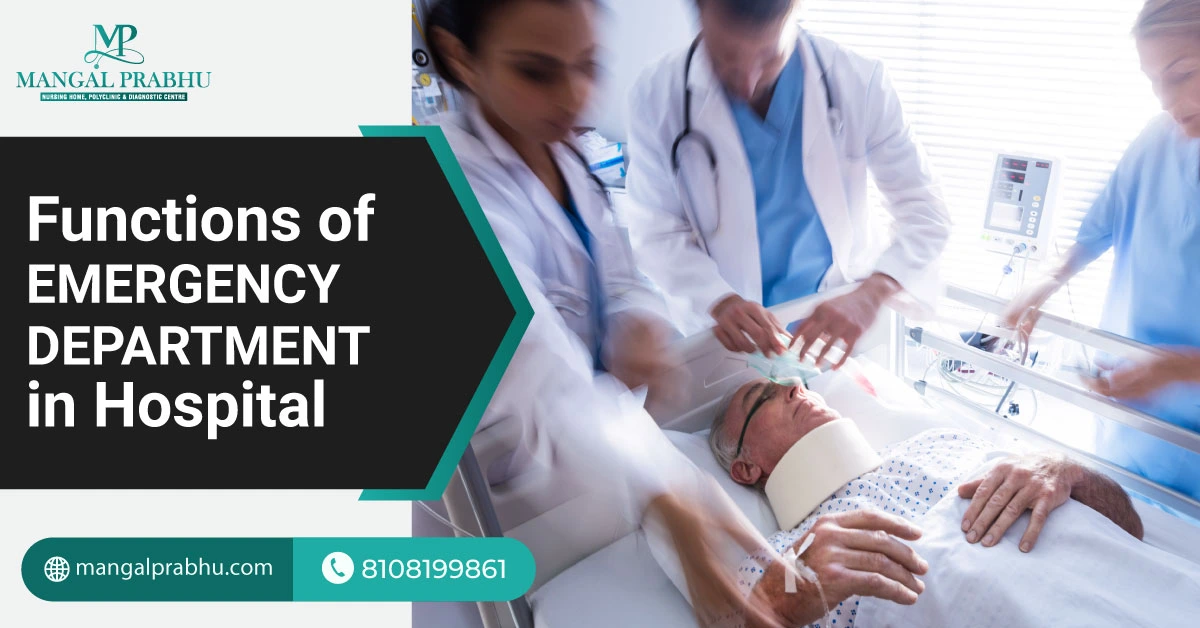
Critical medical conditions that require immediate medical attention can strike at any time. Anyone can become the victim of unexpected illnesses or accidents that can be life-threatening if not treated promptly. That’s when the multispecialty hospital in Navi Mumbai, equipped with an emergency department, comes to your rescue.
The department doesn’t just have advanced medical devices that monitor the patient’s vitals round-the-clock, but these are staffed 24/7 by professionals who offer premium care to the patient. So, what exactly are the functions of the emergency department in the hospital? Let’s find out.
Functions of Emergency Department in Hospital
Primary Functions
When a patient is admitted to the emergency room, it’s mainly because of a life-threatening condition that can result in severe complications or possibly death in most cases. This includes patients who’ve suffered a heart attack, a severe injury to their vital organs, or breathing difficulties. After admission, the doctors will carefully assess the root cause of the issue and focus on stabilizing your health, ensuring that your vitals are controlled, you are not in pain, and you won’t suffer further deterioration.
A Triage
An emergency care hospital in Navi Mumbai follows a triage system in which patients are sorted by the severity of their condition. Those who have a critical medical issue get immediate attention. Patients who can survive without advanced life support are admitted to the general ward or private rooms (based on their preference). The system ensures that patients with severe medical issues, such as cardiac arrest or trauma, are given emergency care to save their lives.
Coordination with Specialized Departments
A multispecialty hospital is staffed with doctors specializing in different segments of the healthcare industry. These hospitals have neurosurgeons, cardiologists, pediatricians, gynecologists, and other specialists who can offer immediate care and surgery if needed. Depending on the case, the patients might be referred to another hospital that’s staffed with specialists in the particular area of medicine.
Challenges Faced
1) Stressful Decisions:
Specialists working in the emergency department often have to make critical decisions, such as whether it’s worth keeping the patient on life support or not. Besides, the life-threatening illnesses that sometimes lead to death can be super overwhelming for doctors.
2) Switching Jobs:
Healthcare professionals must be qualified to perform various invasive and non-invasive treatments for different cases. One minute, they may be handling an emergency gynecology surgery to repair a ruptured fallopian tube, and the next, they may be performing an emergency kidney transplant. This can make their jobs challenging.
3) Technological Challenges:
Not every emergency department in a multispecialty hospital is equipped with advanced technological tools to handle emergency cases effectively. Besides, overcrowding may result in a shortage of hospital beds and rooms to admit critically ill patients.
Conclusion
There’s no denying that emergency units make hospitals the “safe place” for people who’ve sustained an unexpected injury or medical crisis. The key players are qualified doctors who do their best to keep the patient alive, stabilize their vitals, and ensure that their condition is normal. Besides that, high-quality, technologically advanced tools used in these facilities offer the best life support.
